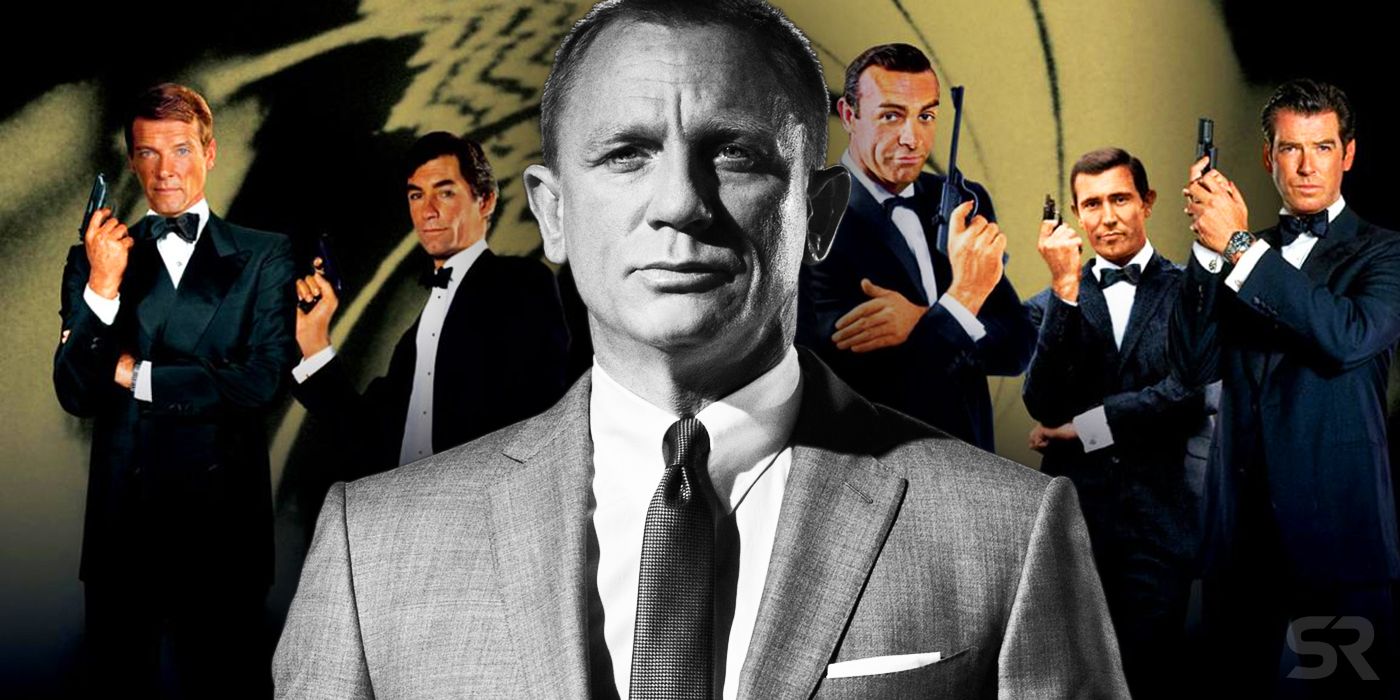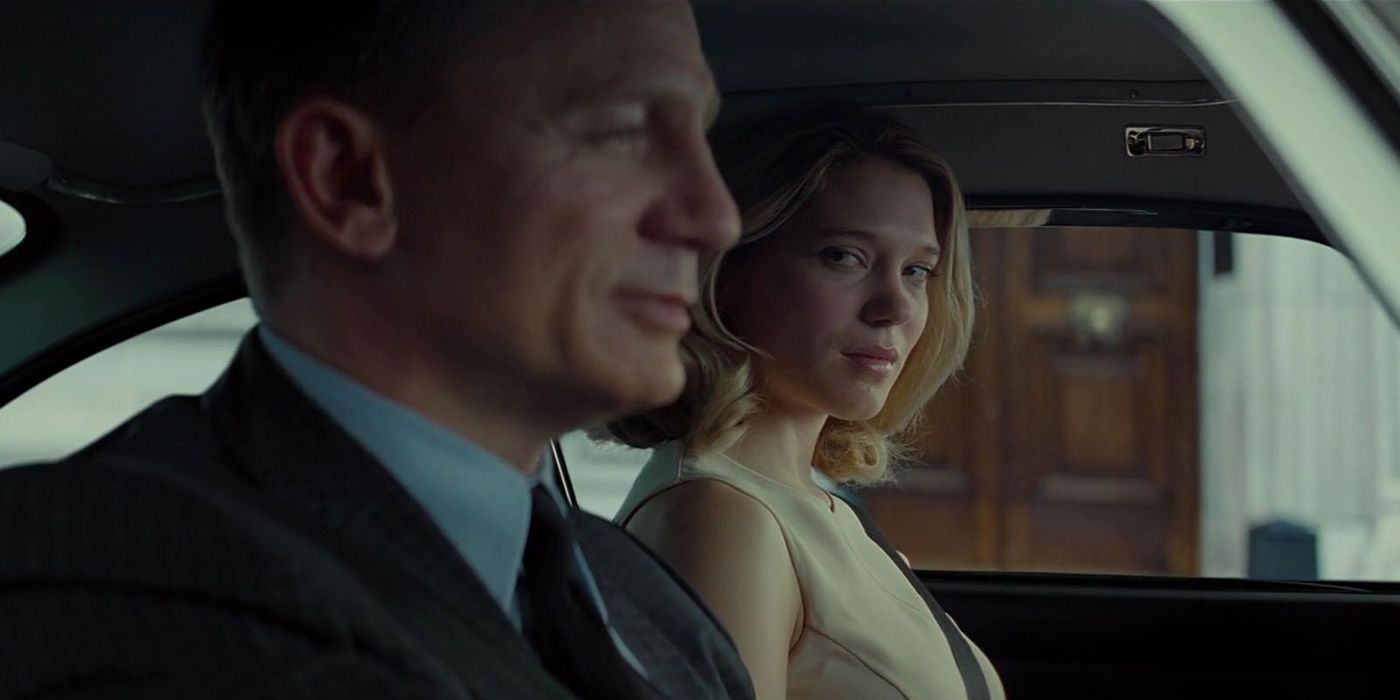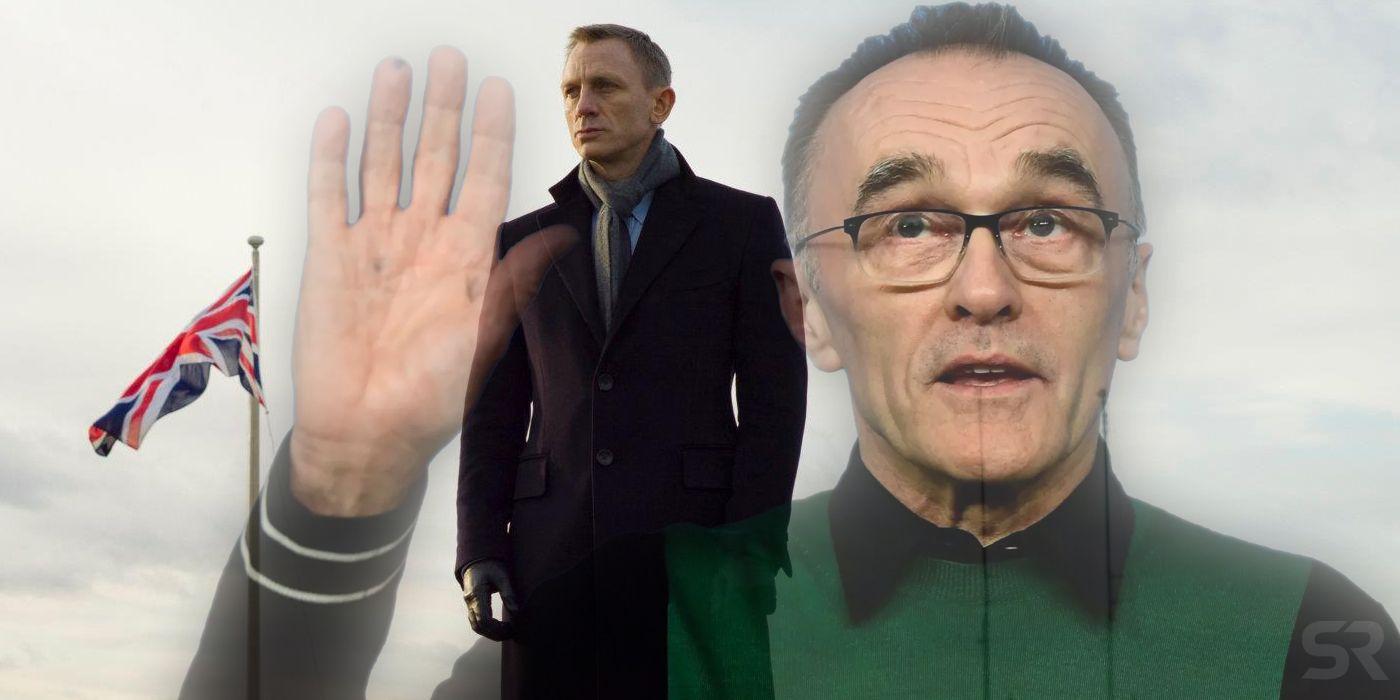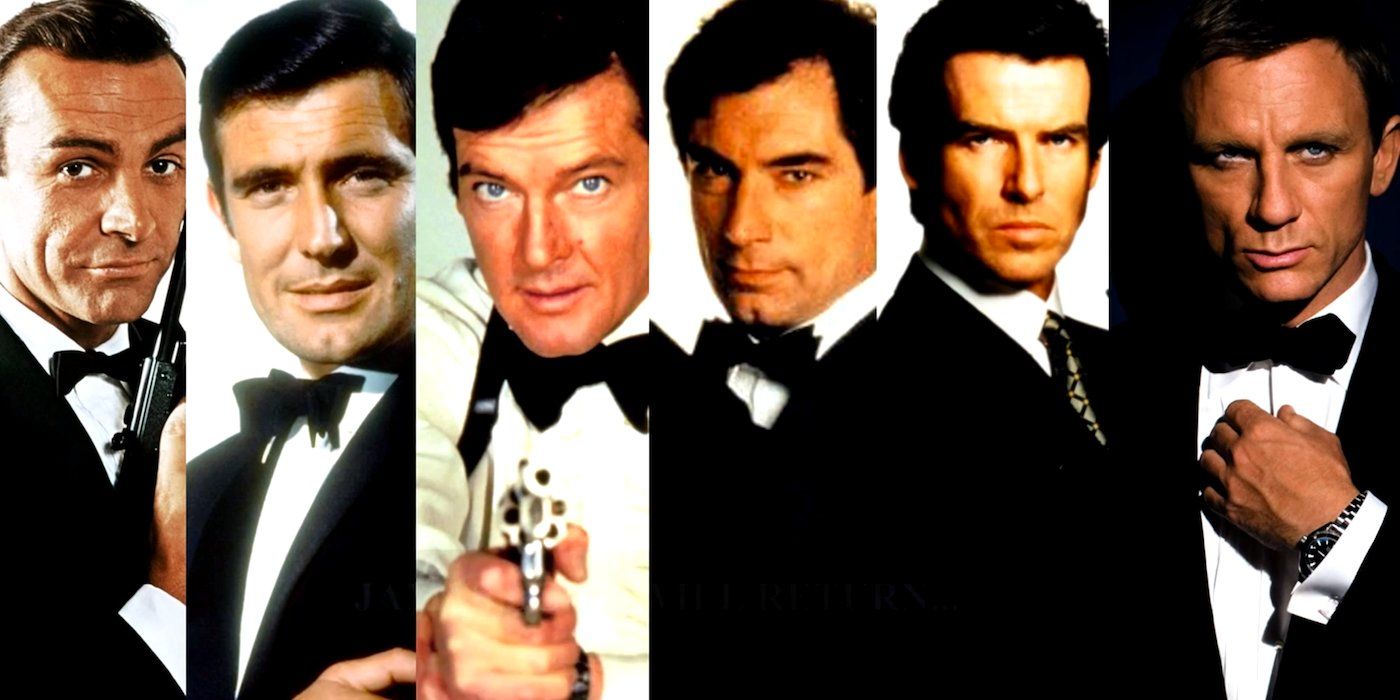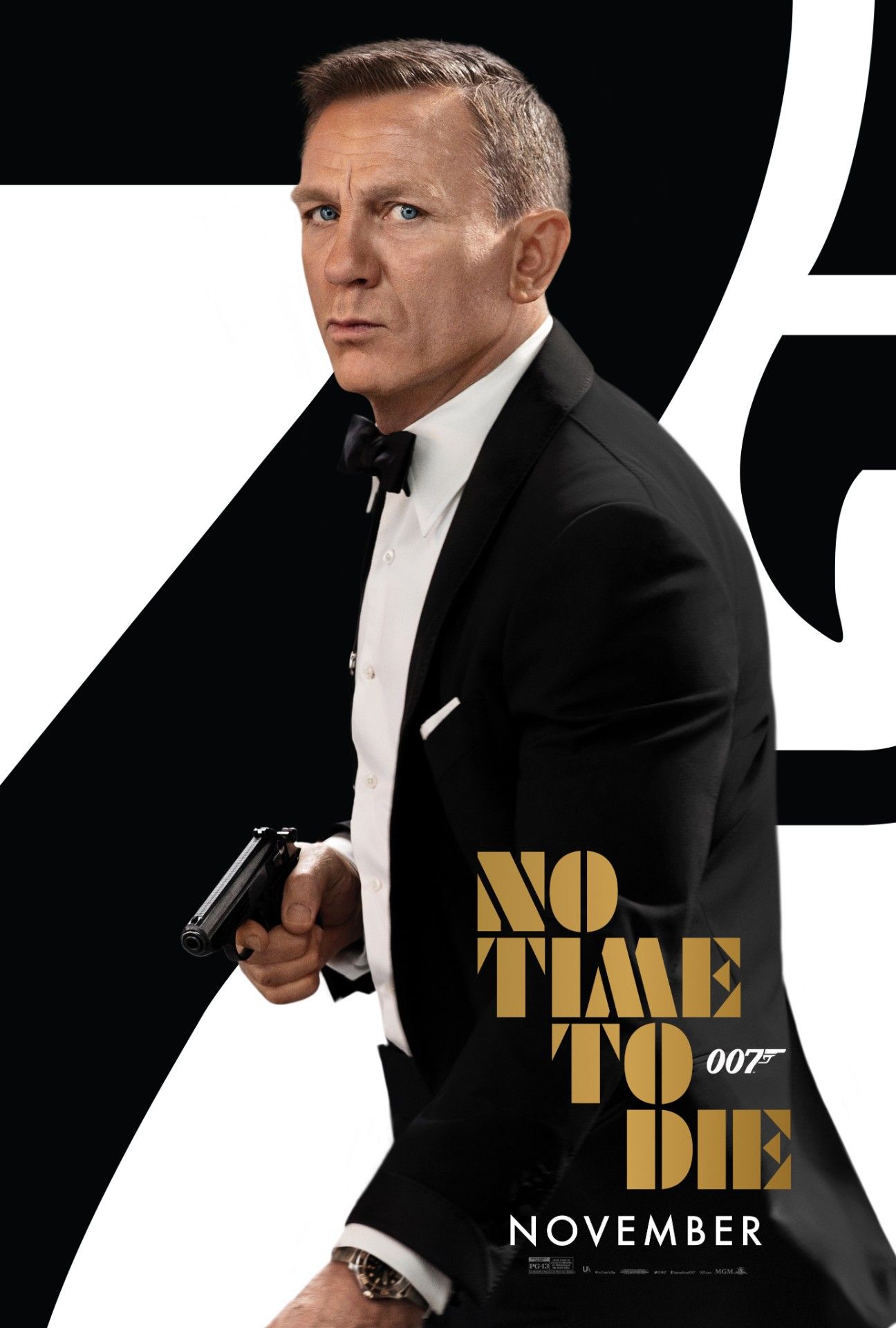James Bond is in a crisis, and it's one that's been going on for a lot longer than Danny Boyle. The director, famed for the likes of Trainspotting, 28 Days Later and Slumdog Millionaire, recently departed Bond 25 after signing on back in March. The cited reason has been that age-old adage "creative differences", with Boyle's vision for the landmark entry clashing with producers and star Daniel Craig alike.
Right now, the latest 007 movie is in a state of flux. It's lost its director, with a rapid hunt on for a replacement, but there's still uncertainty of whether John Hodge's script (based on an idea by Boyle) or a previous draft by long-standing Bond scribes Purvis and Wade will be used, and all this under a looming (and reportedly unattainable) November 2019 release date.
Related: James Bond 25: Everything You Need To Know
But, really, this is much bigger than a single movie. Bond 25's pre-production is rockier than the side of a volcano secret base, but its problems are really just an extension of 007's struggles with the modern era of movie-making.
- This Page: Spectre Is The Root Of Bond 25's Pain
- Page 2: The Long History Of Bond 25's Problems
- Page 3: How To Fix James Bond
Spectre Is The Root Of Bond 25's Pain
If there's one reason to suspect Bond 25 will make its release date despite such a major change only fifteen months ahead of release, then it's that something similar happened on the previous James Bond movie. Spectre started filming in December 2014, less than eleven months before release, and wasn't finished until just days before its first screening. This rushed production led to an ill-received film, one that made $200 million less than Skyfall and raised eyebrows from Bond fans and greenhorns alike. And, because even with very pretty images it was an unrefined story, the core problems are glaringly obvious.
It attempted to retrofit Bond into a Marvel-esque shared universe where every previous entry in Craig's canon was part of some grand plan - that Casino Royale was overseen by Quantum, itself part of Spectre, was easy enough to buy (and paralleled Connery's era) but forcing Skyfall into the mix too showed the ill-thinking motivation. The villain was Blofeld, something hidden in the marketing for the benefit of nobody in particular: as with Khan in Star Trek Into Darkness, die-hard fans would immediately figure it out, while those who aren't wouldn't care enough to recognize the name. These were the defining story choices, and they reeked of a classic attempt to pep up the formula.
What really stands out in Spectre, though, is its problems with its own canon. After Casino Royale stripped back Bond for a gritty retelling and Skyfall delivered something almost operatic, Spectre attempt to beeline more towards the tone of late-Connery or Moore, matching the visual stylings of Skyfall with the jokes of the 1970s to bizarre effect. Although, where the film really shows the confused production is in the handling of its defining question. Skyfall was an introspective Bond movie, asking from all corners if James, 007 and MI6's super spies had any place in the modern day, eventually concluding that it can if it willfully evolves; it ended with Bond shown through M's office by Moneypenny, a reaching of the series' original status quo that gave a sequel free reign.
Related: How James Bond 25 Can Move Past Spectre & Rescue the Franchise
And yet Spectre was primarily concerned with reasking the same question: Bond's familial link to Blofeld dredges up the relevancy question with it, and the whole C subplot is essentially a thematic retread of Skyfall. Except this time, the conclusion was that, actually, maybe we don't need Bond: James rejects MI6 and with new squeeze Madeline drives off into the cloudy London sunset. Forget that the ending was literally setting up a Tracy Bond wife-murder situation from On Her Majesty's Secret Service, something we'd already seen approximated with Vesper in Casino Royale, this undid Skyfall and left the entire point of Craig's Bond hanging limply.
Page 2: The Long History Of Bond 25's Problems
Bond Has Been Struggling In The FOUR YEARS Since
Of course, Craig is a problem by himself. Early on the press tour for Spectre, he said he would rather slash his wrists than play Bond again, starting off a string of strongly-worded statements suggesting that the rushed production and overall pressures of playing Bond meant he wanted to hang up his Omega. This will-he-won't-he ran for a staggering two years until August 2017 when he finally confirmed he would come back for Bond 25. This negotiating (Craig was signed on for another movie but could have voided his option) probably played a big role in the current four-year gap between Spectre and its follow-up, and fuelled the never-ceasing speculation of who the next Bond will be; as recent, unfounded rumors Idris Elba was frontrunner to replace Craig show, that's the topic.
Craig wasn't the only one burnt by Spectre: Sam Mendes, who has been so assured on Skyfall, was run-ragged on its sequel and swiftly ruled himself out of directing Bond 25. The rise of auteur Bond put the series in a bind, and eventually they stepped back to Neal Purvis and Robert Wade. This writing duo has had a hand in every single Bond movie since 1999's The World Is Not Enough: that's the final two Brosnan's and all four Craig's. What's startling is not only the range of quality and tone within their films, but how many shared qualities they are. Bond going on the run from MI6 to stop a villain with a strange obsession with him: 007 has a formula, but Purvis and Wade are like formula squared. When the script went back to them, it was a sign of resignation, of just wanting to get the film out.
Related: James Bond Desperately Needs New Writers
Then came the rights issues. Eon and MGM own James Bond, but they co-produce with other studios and distributors. For Craig's era, that's been Sony, but their four-picture deal expired with Spectre, leading to renegotiations and sales. Eventually, Annapurna and Universal took up domestic and international rights respectively. This didn't really show any creaks, although the final decision did come very late, only eighteen months before Bond 25's planned release.
All of this is how we get to Danny Boyle. He'd technically directed Craig's Bond before for the 2012 Olympic Opening Ceremony (making Queen Elizabeth II a Bond girl in the process) and came armed with a highly modern, socially pertinent script by John Hodge that won over Craig, the producers and studio. Information is thin, but reports suggest the film had ties to #TimesUp and #MeToo, with a Russian villain bringing some highly political angling. After everything we've discussed, something that ditched franchise confusion and honed in on just telling a good Bond story seemed exactly what was needed. But it wasn't to be, and now we have a Bond 25 with two vastly different scripts, controversial for their own reasons, and an incredibly uncertain future.
Page 3: How To Fix James Bond
Bond's Current Problems Are Old Problems
But while all these specifics paint the picture of a franchise lacking in real direction, they ultimately come down to something Bond has been dealing with for decades. The series was defined very quickly in the Connery era - by Goldfinger (film three) all key aspects of the formula are present - and much of those definitions remain the popular view of 007 to this day. The issue comes in this being a 1960s series based on Cold War-era novels based on World War II vets. That's a very specific type of character, one that we're removed from more and more.
As a result, Bond has been known for its constant reinvention. Each Bond actor brought with them a wider shift in tone - Moore went full-on camp, Dalton grit, Brosnan 90s-modern, Craig youthful grit (and success this time) - but movie-to-movie the series would evolve with the times. It was always a spy adventure identifiable within the franchise, but you can get Bourne-style parkour-focused outings in a boxset right alongside madcap sci-fi. This can be seen best with Moonraker: previous entry The Spy Who Loved Me had promised "James Bond will return in For Your Eyes Only" but after the success of Star Wars the series pivoted into the sci-fi named Moonraker, changing Ian Fleming's story to better match that box office success. It worked, holding the title of highest-grossing Bond movie until GoldenEye almost two decades later.
Related: The Next James Bond Movie Should Go Back in Time
Reinvention and trend-surfing is the unspoken core of the Bond franchise - it doesn't need hard reboots because each movie is that already - but also means its identity can get confused. Everybody knows about the suits, the martinis, the one-liners, the girls, the gadgets... but these are all very surface level. Strip James Bond to his core and you at best have someone who's old-fashioned in a very British sense, with an outdated view on many things but not least sexual politics (even Craig's progressive movies have had him sleep with a former child prostitute and a widow the night after the funeral of the husband he killed).
This is how you get into a situation where Spectre struggles with its legacy and Bond 25 has nowhere to go. Whereas Star Wars' problem is that everybody has a different read on what the franchise is, for James Bond everybody knows it to a point, and then there is not much else. Position this as a media juggernaut where tie-in deals and promotions are an industry unto themselves, and pressures mount up.
How To Fix James Bond
So, with everything laid down, how do you fix James Bond? The short answer is that it's such an anomaly in major franchises that no easy fix exists. There are so many ways to take 007 from here - indeed, the post-Fleming books have explored Bond's youth, his wartime antics, and various period settings, and all have strong big-screen potential - but they don't do much to address the inbuilt problems.
With things so muddled, Bond 25 should take a step back; as with most franchises, from Friday the 13th to Star Trek, the best advice is to not overthink it. Now, 007 isn't as simple as a hockey-masked hulk stalking camp counselors, but neither should it be a mammoth undertaking that takes four years to complete a single movie; the only real difference need be locking in the sponsorship, and even that's not out of the ordinary nowadays. That aside, the biggest thing holding the series back is that it's moving at such a glacial pace.
Eon should stop correcting internally - each Craig movie seems to be trying to fine-tune what came before - and make a basic Bond adventure that follows trends and address dated elements, sure, but ultimately nails the formula (although ditches Purvis and Wade's recurring "on the run" plot). Pick the mission, pick to the villain, pick the stunts, pick the girl and go.
Will it work? It may not be as introspective as Skyfall, but it'll be a solid action movie with the right talent. Then you can do another one in two years, building from there. We don't need a shared universe tease, we don't need a grand character arc, we don't need canon wink twists. That's right: the easiest way to fix James Bond is just make a James Bond movie.

